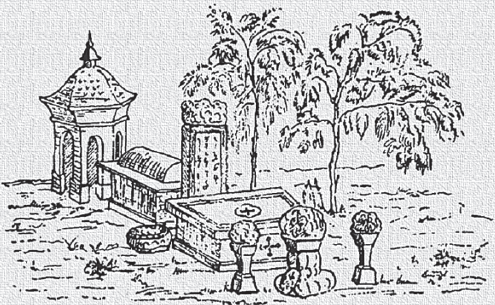 |
|
The burial ground of Matteo Ricci, as appearing in a pencil sketch made in 1874. [Photo provided to China Daily] |
Li Xiumei, an associate law professor at the Beijing Administration Institute, says that while Jesuit missionaries who were pragmatists demonstrated a high level of tolerance toward Chinese traditions and customs - a man needed not to banish his idols in order to convert - Chinese scholar-officials such as Xu also did their fair share of self-persuasion.
"Some succeeded in convincing themselves that becoming a Catholic in no way impinged on their core identity as a Confucian, since Christianity could be used to supplement Confucianism, and to restore to China what was originally theirs and their best," Li says.
Xu, who with Ricci translated the first six books of Euclid's Elements into Chinese in Beijing around 1607, a few years before Ricci died, made this observation in the preface he wrote for their co-effort.
"He's not making unfounded assertions," Li says. "Historical evidence shows that the ancient Chinese once gained certain scientific knowledge, which was lost by the end of the Ming Dynasty. One example involves the algebra that appeared around the first millennium, during the Song Dynasty (960-1279). By the time the Jesuits arrived, certain writings concerning the topic still existed but were no longer understood in China, not even by its brightest brains."
In other words, from a Chinese perspective, Western learning, as often personally embodied by Ricci and his equally talented and determined followers, had an origin that is decidedly Chinese. By taking up their religion, Xu and his like-minded Chinese were trying actively to rediscover and recover what had belonged to their ancestors.
In part due to the fact that some of these Chinese occupied important positions at court, the same type of thinking inevitably seeped through the high walls of the royal palaces to reach men at the top.